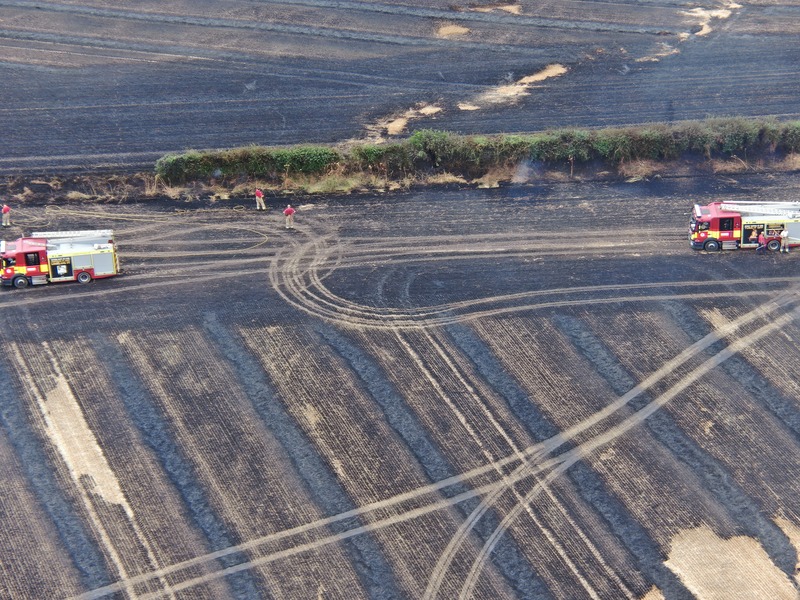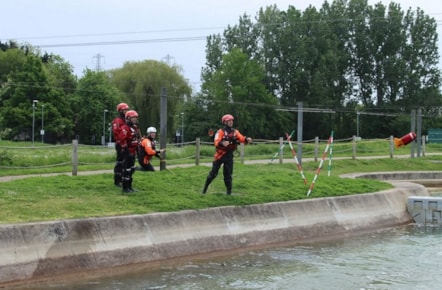
Drowning risk
London Fire Brigade has already attended more than 30 incidents involving people in the water in 2024, with concerns this number could spike over the course of the week due to the warmer weather. Teenage boys are, sadly, over-represented in accidental drowning statistics, and this week also marks the end of exam season as GCSE and A-Level students break up for the Summer.
During Drowning Prevention Week (15-22 June), the Brigade began work encouraging local authorities to risk assess waterways and known swimming spots to ensure that life-saving equipment is available, well-maintained and, where necessary, procured. LFB’s advice follows data from the National Water Safety Forum, which shows that 60 per cent of accidental drownings in the UK occur inland on waterways such as rivers, canals, lakes, reservoirs and quarries.
London Fire Brigade’s Assistant Commissioner for Prevention & Protection, Craig Carter, said: “While it might be tempting to go into water to cool off from the heat, we’re asking people to think carefully.
“Despite the warm weather, London’s waterways are still cold enough to put a person into cold water shock which can affect anybody, no matter their fitness. It causes panic, anxiety, disorientation and loss of muscular control, which causes a person to gasp for air – inhaling water as a result.
“Rather than struggling, people are encouraged to 'float to live'. Tilt your head back with your ears submerged. Try to relax and breathe normally. You can gently move your hands to help you stay afloat if you need to. Spread your arms and legs out to improve stability – and it's OK if your legs sink, we all float differently. Once your breathing is under control, call for help or swim to safety.
“Use life jackets when taking part in water sports and don’t jump into the water. We’re not here to spoil anyone’s fun – but there is a very real risk when it comes to London’s canals, waterways and the Thames.”

Fire risk
With temperatures forecast to reach 25 degrees Celsius over the coming days, people are expected to flock to the capital’s numerous parks to enjoy the sunshine.
While many parks and open spaces have bans on disposable barbecues in place, the Brigade wants Londoners to know that they present a significant fire risk as heat can be retained for many hours, even after it has been put out.
Firefighters will be working closely with councils to ensure that open spaces are carefully managed to reduce the risk of wildfire, particularly in areas where open spaces meet residential, commercial or industrial buildings.
Assistant Commissioner Carter said: “We know many Londoners will want to enjoy the nice weather by visiting a park or open space. However, we’re asking people not to take disposable barbecues with them as they can cause grass fires, especially in hot weather when the ground is dry. These fires are unpredictable and can spread rapidly, causing a significant amount of damage.
“Don’t be tempted to barbecue on your balcony either. Balconies can contain combustible materials which can pose a risk to those barbecuing and others living nearby.
“If you are having a barbecue, never leave it unattended and be careful where it’s positioned. Aim for level ground and keep barbecues well away from anything flammable like sheds, fences, trees or tents.”
As well as disposable barbecues, discarded smoking materials and leftover rubbish also pose a significant fire risk. Firefighters are urging people to dispose of rubbish properly and always ensure cigarettes are completely stubbed out.
Tips
Top water safety tips
• Don’t go into the water if someone else is in trouble. Call 999, tell them to float.
• Look for nearby public rescue equipment. If not available, throw something that floats.
• Never drink alcohol and then go for a swim or attempt to jump into water
• Avoid walking/running very close to water on your own or late at night - it’s easier than you think to slip and fall in
Grass fire prevention tips
• Don’t drop cigarettes or anything that is burning on dry ground.
• Don’t drop cigarettes out of car windows - they may land on dry grass by the roadside.
• Don’t have barbecues in parks and public spaces.
• Do not barbecue on balconies, the wind may carry smouldering ash towards grassland.
• Be aware that children, animals, balls or anything else may knock over barbecues, increasing the risk of grass fires, especially when in busy parks or public spaces.